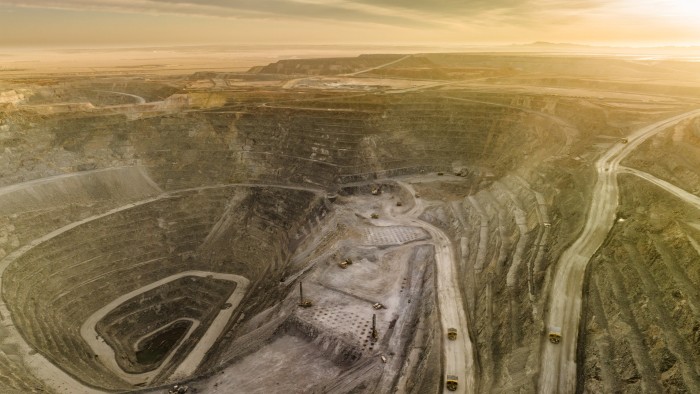Stay informed with free updates
Simply sign up to the Mining myFT Digest — delivered directly to your inbox.
Rio Tinto’s earnings fell last year due to weaker iron ore prices and inflationary pressures, the Anglo-Australian mining group said on Wednesday.
The London-listed group, which is a leading iron ore and aluminium producer, said underlying earnings fell 7 per cent to $10.9bn during 2024. However, net earnings, which take into account impairments and asset disposals, rose 14 per cent compared with the previous year to hit $11.6bn.
The average price of iron ore sold by Rio in 2024 was 11 per cent lower than the previous year, it said, contributing to a drop in earnings from the steelmaking ingredient.
Mining groups reporting their results this week, such as Glencore and BHP, have been hit by lower prices for iron ore and coal, as well as inflationary pressures that are pushing up operating costs.
Although Rio has pointed to “signs of stabilisation” in the Chinese property market, which is a major driver of commodities demand, it is grappling with lower iron ore earnings due to weaker overall demand from the Asian country.
Ben Davis, analyst at RBC, said Rio’s annual results were “delightfully straightforward”, noting that dividends of $6.5bn for 2024 were still in line with expectations even as underlying earnings fell slightly below average forecasts.
Earnings from Rio’s aluminium and copper businesses picked up, reflecting an expansion of its giant Oyu Tolgoi copper mine in Mongolia.
Rio, which owns significant aluminium operations in Canada, is highly exposed to the fast-changing tariff policies of US President Donald Trump, according to analysts. New measures announced by the administration include a 25 per cent tariff on US imports of aluminium and steel.
Chief executive Jakob Stausholm said Rio might redirect some of its Canadian aluminium away from the US market as a result of the tariffs. Canada is the biggest exporter of aluminium to the US.
“It is probably not going to be significant for us, it might be more hard for our customers,” said Stausholm, who is in Washington this week to meet Trump administration officials.
Rio’s large portfolio of commodities — which span from lithium to copper to iron ore — will help to minimise the impact of specific tariffs, he added.
Rio has several US mines and processing facilities, and is waiting for a decision from the country’s Supreme Court that could determine the fate of its proposed development of the Resolution copper mine in Arizona.
Three members of Rio’s board will step down this year — Sam Laidlaw, Simon Henry and Kaisa Hietala — shrinking its size from 14 members, to 11.
Activist shareholder Palliser Capital has campaigned for the company to shift its primary listing from London to Sydney, arguing the move will boost the group’s valuations.


